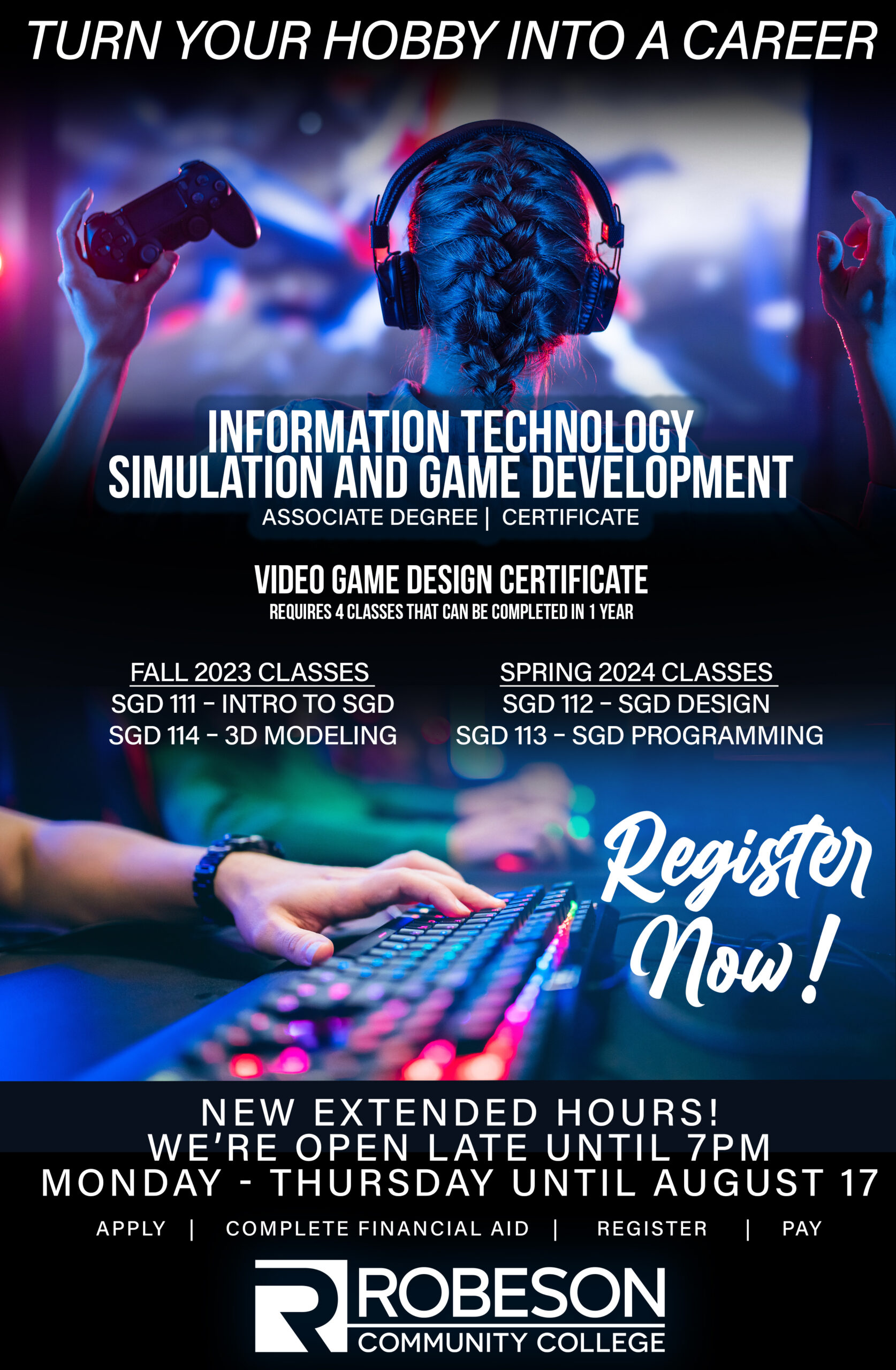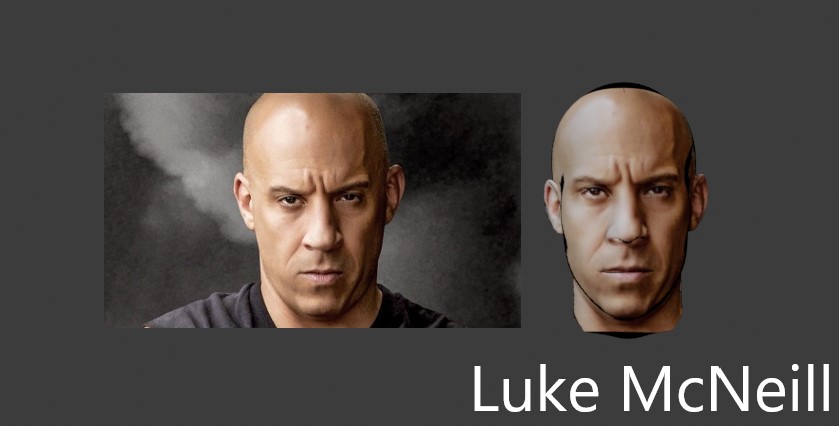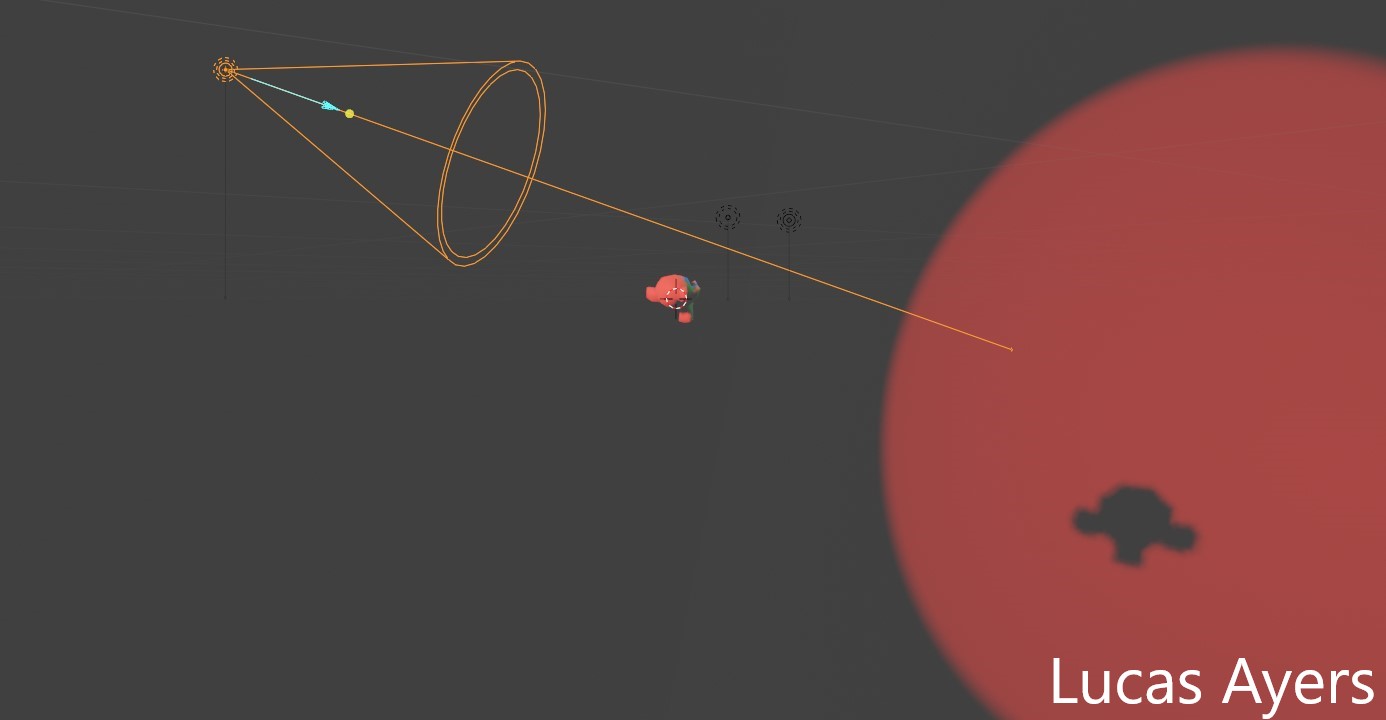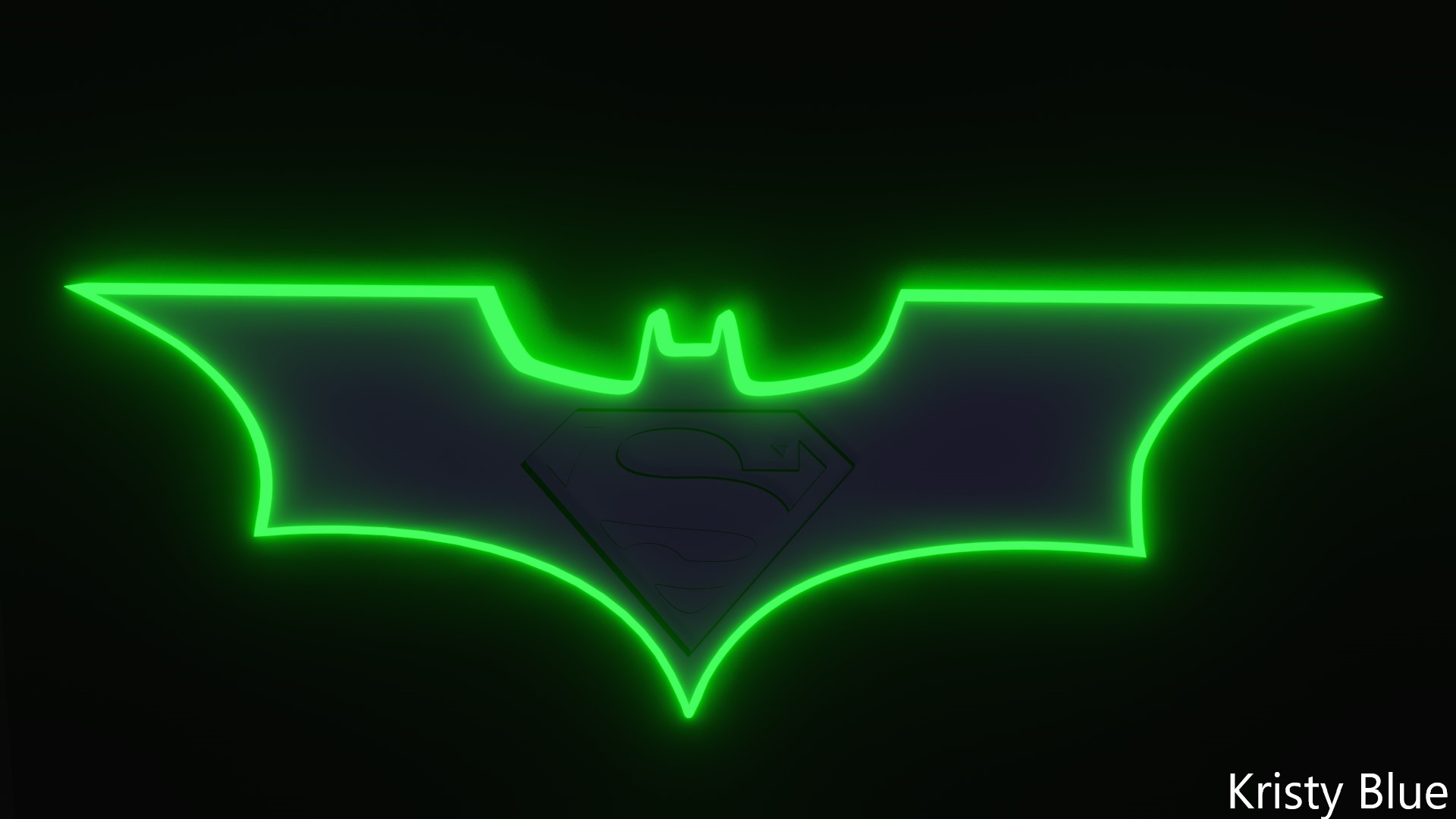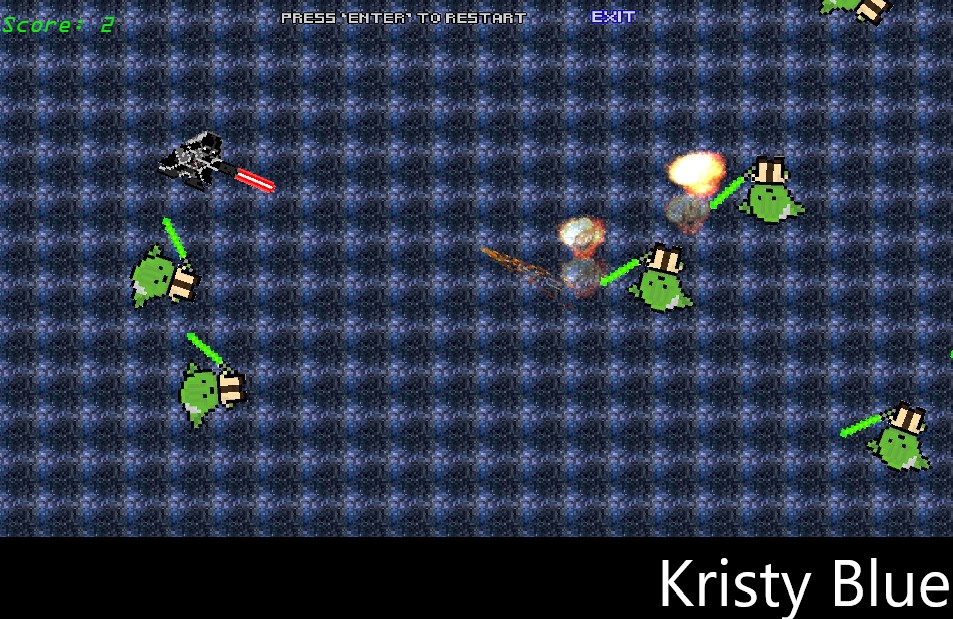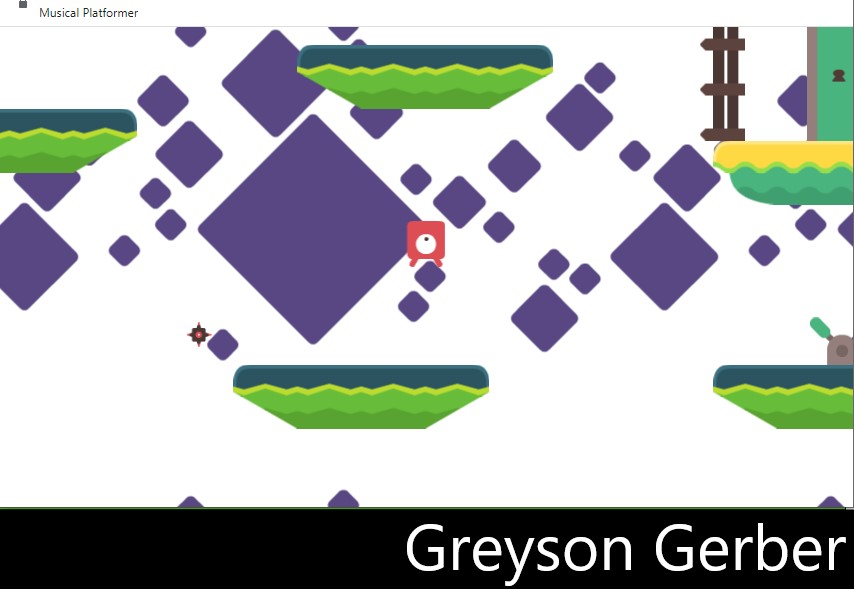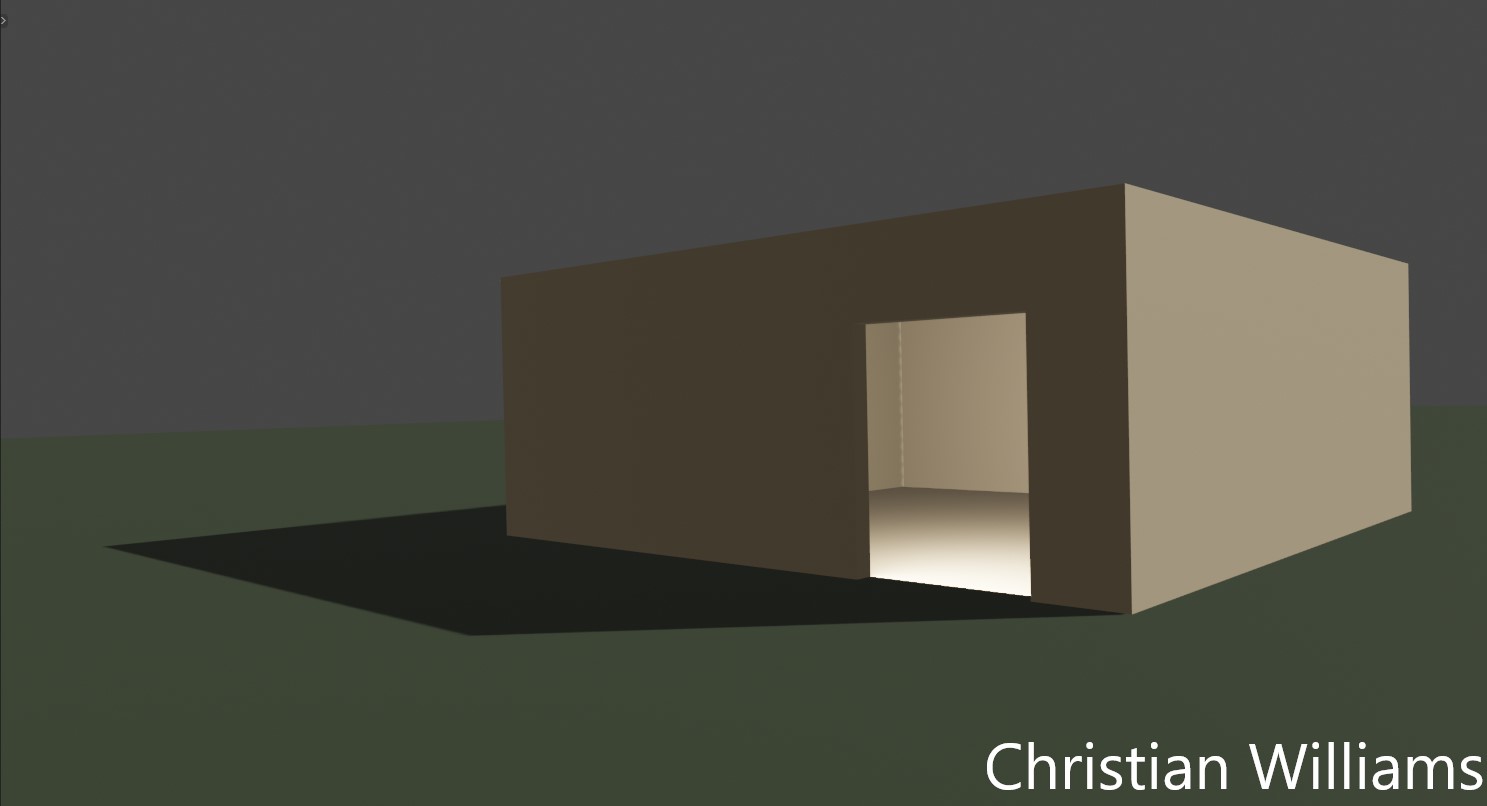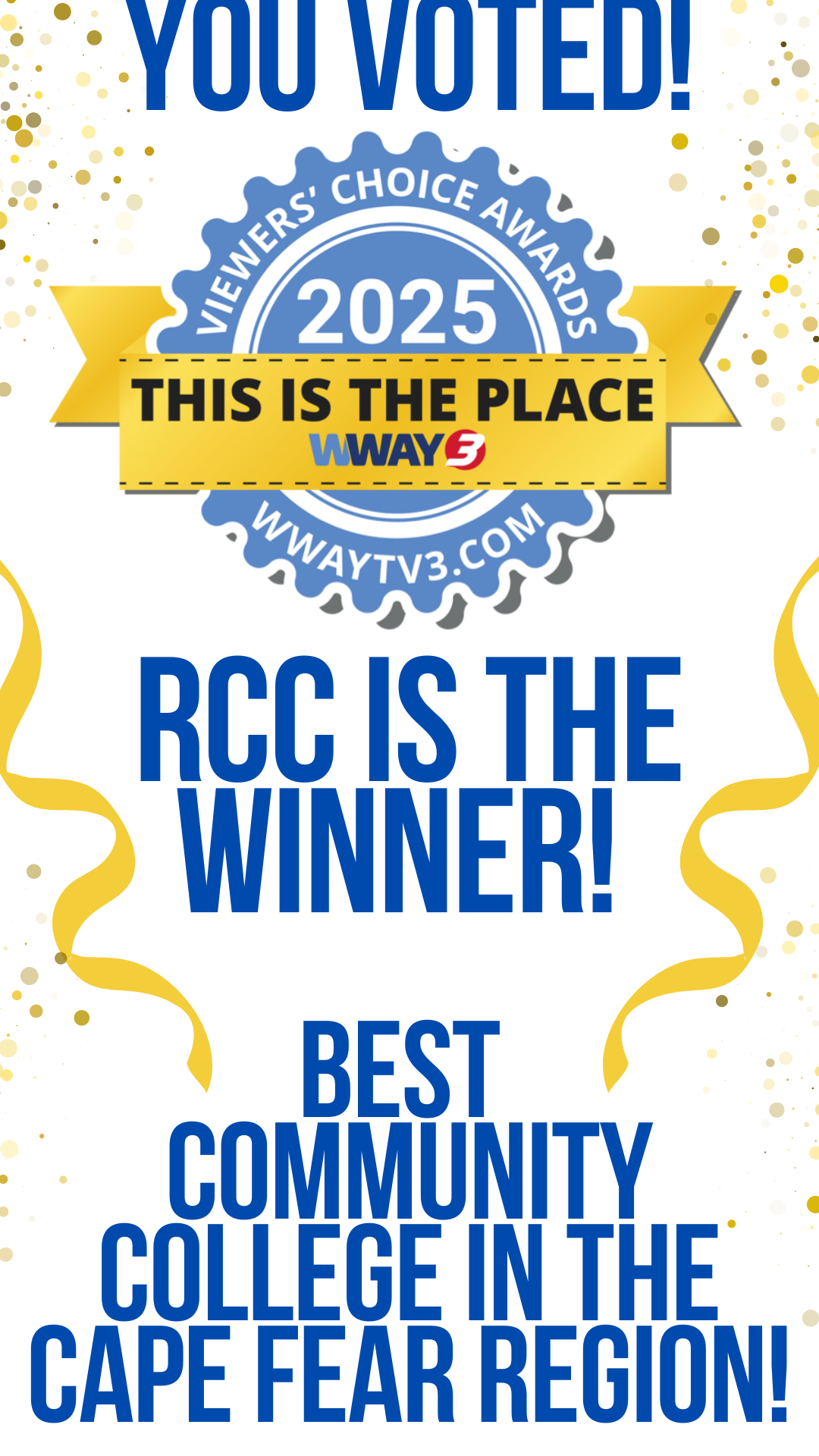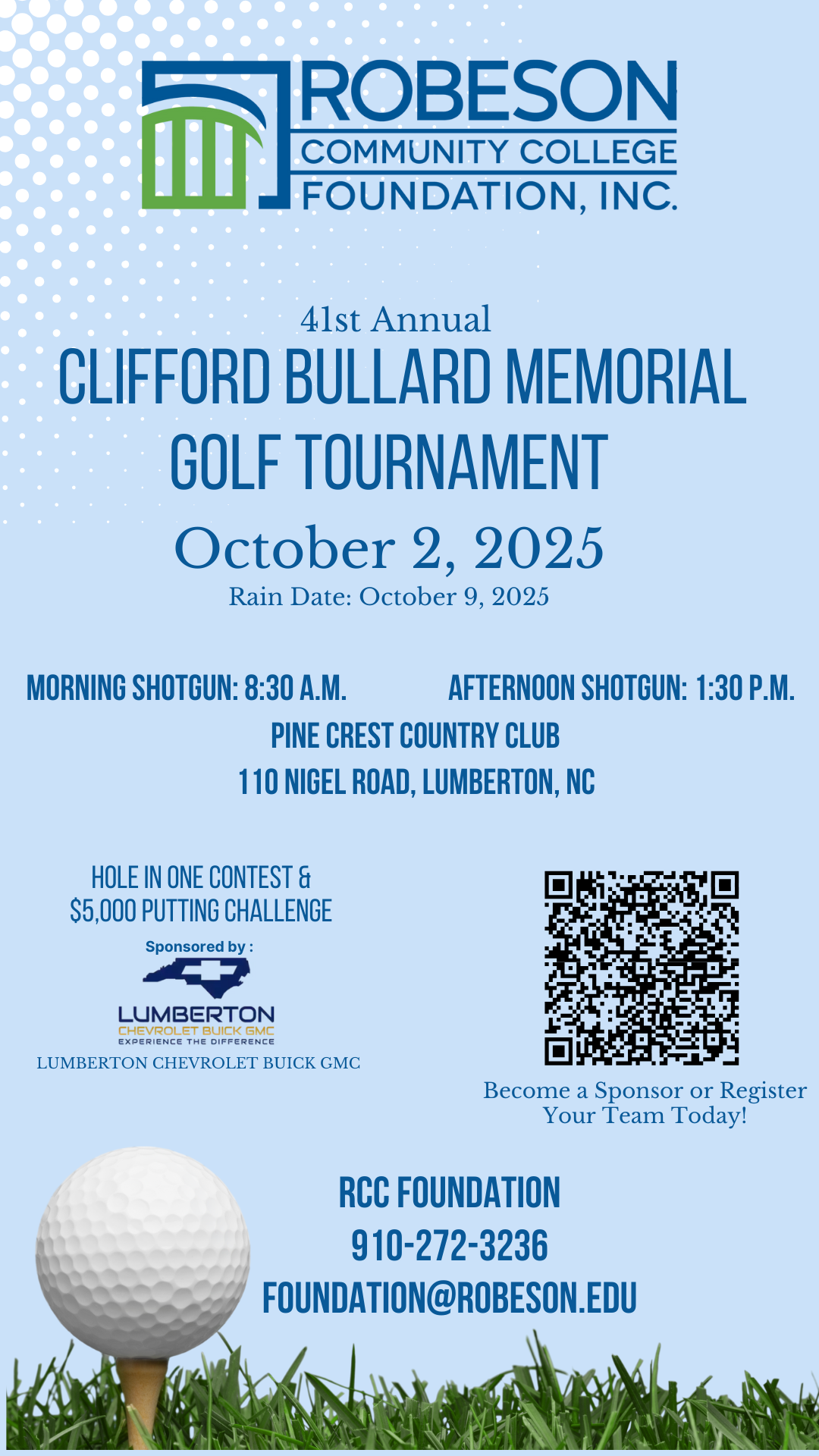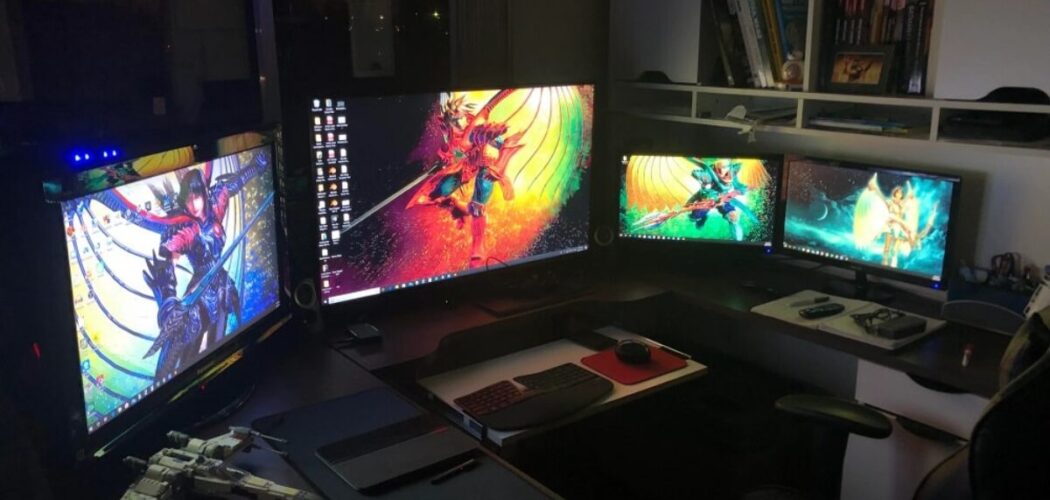
RCC’s Simulation and Game Development program teaches design, animation, production
One of Robeson Community College’s newest programs, Simulation and Game Development, teaches students the fundamentals of video game design, animation, and production, allowing them to turn their hobby of gaming into a career. The college currently offers a certificate program, as well as an associate degree that also encompasses Information Technology and Networking. The program aims to give students hands-on experience in the video game design field and prepare them for work in the industry.
“I try to make the classes as fun as possible,” William Stubbs, the SGD instructor at RCC. “How far the student goes really depends on them and what direction they want to go in.”
Stubbs says that students gain a variety of skills to add to their resumes, including 3D Modeling, 3D Video, programming languages like C++, and software applications such as Blender and Construct.
“Blender is a free software program,” Stubbs says. “It teaches 3D, it’s a very powerful program and helps out students… it’s not too difficult once you learn the shortcuts.”
“Completing the program will earn the student a Gaming certificate which can then be transferred to a 4-year university,” Stubbs says.
The certificate only requires the completion of four classes, which Stubbs says can be completed within one year since with two classes offered in an 8-week format in the Fall, and two classes taken in the Spring in a 16-week format.
“You’ll take SGD 111 – Introduction to SGD and SGD 114 – 3D Modeling in the Fall,” Stubbs stated. “Then in the Spring, you will complete SGD 112 – SGD Design and SGD 113 – SGD Programming.”
The program also teaches the history of gaming, with opportunities to see vintage game equipment that Stubbs has collected over the years.
Stubbs say, “I’ve got old video consoles and technology that students enjoy seeing… One story that comes to mind is, I brought a Super Game Boy adapter for the Super Nintendo… the students think it’s crazy how well the technology was and how programmers had to really know how to put this hardware together.… nowadays if something is wrong with a game, companies just release a patch or update to fix the issue, but these old technology items worked right out of the box.”
As far as a career goes, Stubbs says there are many opportunities available. “Learning how to break down a video game can be used for movies and tv shows.”
“They could become CGI Artists working on Disney movies… Disney has all kinds of positions open for CGI Artists, writers for movies who understand storyboarding, especially now with the current writer’s strike.”
With a good portfolio built through the certificate program, Stubbs believes that his students could work at any of the major movie and video gaming production companies including Nintendo (Mario Bros. Zelda, Pokémon) Microsoft (Halo, Fable) Warner Brothers (Batman, Scooby-Doo), Disney (Frozen, Avengers, Star Wars), Epic Games (Fortnite, Gears of War), Blue Sky (Ice Age), Sony Pictures (Hotel Transylvania), or Illumination (Super Mario Bros. Movie, Minions).
“If you work hard and that’s the direction you want to go in, you could definitely land a job with one of those companies,” Stubbs stated. “You might even be able to work remotely from home.”
Some of the work may require finite attention to detail that requires long hours for just one scene.
“Another story I enjoy telling in class is during the video game designing process, there is a special effects artist that will be dedicated to just the fire effects,” Stubbs said. “So, if you notice great fire effects in a game, that is the work mostly of one dedicated artist.”
If you would like to learn more about the Simulation and Game Development program, please contact Stubbs at 910-272-3495 or wstubbs@robeson.edu.
Below you will find some of the artwork created by students enrolled in the Simulation and Game Development program.
